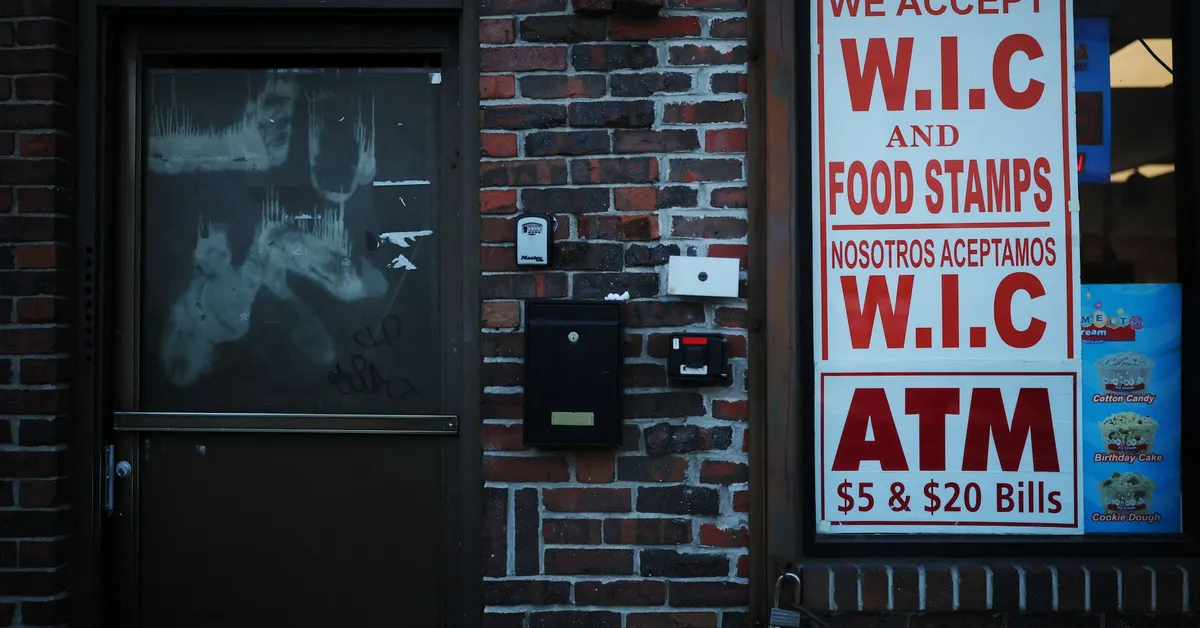
BOSTON, Oct 28 (Reuters) - A coalition of Democratic-led states has initiated a legal challenge against President Donald Trump's administration, aiming to prevent the suspension of food aid benefits that is set to take effect on November 1. This lawsuit arises during the ongoing U.S. government shutdown, which has raised significant concerns regarding the welfare of millions of families across the nation.
Massachusetts Attorney General Andrea Joy Campbell voiced her concerns on social media, stating, "The federal government has the money to continue funding SNAP benefits — they’re choosing to harm millions of families across the country already struggling to make ends meet." This statement highlights the critical situation faced by those reliant on food assistance during this challenging period.
The debate over the government shutdown has led to a blame game between Democrats and Republicans in Congress, particularly regarding the potential lapse of SNAP benefits. These benefits are essential for over 41 million low-income Americans who depend on them for their daily sustenance. Earlier, the USDA had indicated that contingency funds might be utilized to continue SNAP operations, but a recent update on their website declared that no benefits would be issued on November 1, citing a depletion of resources.
The lawsuit posits that the suspension of these benefits is arbitrary and contravenes existing laws and regulations governing the program. Specifically, it emphasizes that "assistance under this program shall be furnished to all eligible households." The plaintiffs, including the attorneys general from Massachusetts, California, Arizona, and Minnesota, argue that the Food and Nutrition Act of 2008 mandates the use of contingency funds when necessary to maintain program operations.
The coalition contends that a failure to issue monthly food assistance payments due to a lapse in appropriations would represent a historic first in the 60-year history of the SNAP program. They are seeking a temporary restraining order from a judge to compel the USDA to allocate available contingency funds for November's SNAP benefits, thereby safeguarding access to food assistance for millions of families in need.
New York Attorney General Letitia James expressed the gravity of the situation, stating, "Millions of Americans are about to go hungry because the federal government has chosen to withhold food assistance it is legally obligated to provide.” This underscores the urgent need for judicial intervention to protect vulnerable populations during this crisis.
The case has been assigned to U.S. District Judge Idira Talwani, who was appointed by former President Barack Obama. In response, a spokesperson for the Department of Agriculture remarked that Senate Democrats are at a critical juncture, where they must decide whether to align with the Far-Left wing of their party or to prioritize the reopening of the government to ensure that mothers, babies, and vulnerable individuals receive timely WIC and SNAP benefits.
SNAP benefits are designed for Americans whose income is below 130% of the federal poverty line, which equates to $1,632 per month for a one-person household or $2,215 for a two-person household in many regions. Payments are distributed monthly, with the specific dates varying by state, as each state administers the benefits locally.
Additionally, the shutdown poses a threat to nearly 7 million participants in the Special Supplemental Nutrition Program for Women, Infants, and Children (WIC), further complicating the nutrition landscape for many families in the U.S.
This ongoing legal battle highlights the intersection of government policy, public health, and social welfare, as the fate of vital food assistance programs hangs in the balance during one of the most significant governmental crises in recent memory.